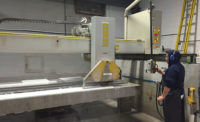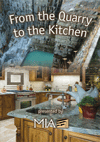But any time I start to feel bad for myself, all I have to do is look down the street to gain some perspective. When I see the destroyed homes and smashed vehicles throughout my neighborhood, I consider myself to be extremely fortunate. And I know it is a cliché, but when you talk to these folks, you see the power of the human spirit. I see people who have suffered unthinkable losses, and they aren't seeking pity, but rather they are talking about what it will take to fix everything. They aren't standing outside sobbing; they are assessing the damage, and they are already formulating a plan for how they will handle what life has dealt them. When I have listened to the radio in the days following Hurricane Sandy (I haven't seen a television in awhile), I have heard a lot of talk from politicians about how people from New York and New Jersey are a tough breed -- and we are. When we get kicked in the gut, we may drop to a knee or even fall down, but we always get back up. And that's exactly what will happen over the next few days, weeks and months. We will bounce all the way back, and we will be stronger for the experience. I am sure of it. So why I am writing all of this in an E-Newsletter that's supposed to be about the stone industry? Well, from a purely self-serving standpoint, I needed an outlet to express some of the emotions I have felt since Hurricane Sandy hit.
But from a business perspective, there is a great lesson to be learned from what is taking place in my state right now -- a recovery doesn't take place on its own; you have to fight to make it happen. I think that the people in the stone industry have a lot of heart and a lot of passion, but I also think that we have been beaten down for so long that a lot of us are feeling deflated and disappointed. More than once, I've had someone tell me that they are working harder than ever, and they are seeing less and less results. Believe me, I completely get that. However, I should note that I have seen many other industry members "fight back" against the recession, and they have done so with success. Maybe they changed their business model; maybe they expanded their product offerings; maybe they changed their client base; maybe they invested in machinery that made them more efficient. No matter what the case, there are plenty of fabricators out there who have adjusted what they are doing, and their businesses have reaped the benefits.
I'm not saying they're booming. (Really, is anyone?) But some of them are showing real growth. Over the past few weeks, I have spoken with fabricators of all sizes at two North American industry events -- a Stone World/MIA Industry Education session in New Jersey, and the SFA MegaWorkshop in Nashville. In discussing the industry with fabricators who are doing relatively well, there seems to be a common thread among them; they adjusted their approach to meet the new reality out there. It isn't always a matter of working harder, but rather taking a different course that addresses conditions that have changed in a very challenging direction. Just as the people here in New Jersey are adjusting to some new realities in Hurricane Sandy's wake, this industry has been dealt a very difficult hand, and as the past few years have demonstrated, it is not going to bounce back on its own. We have to be the ones who make it happen.








